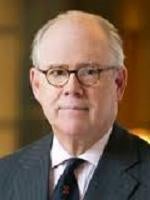The Swiss private offering rules may soon require foreign funds to appoint Swiss distributors in order to sell fund interests to Swiss investors.
Proposed amendments (the Proposal) to the Swiss Federal Act on Collective Investment Schemes (the CISA) issued on March 2 would impose additional requirements and restrictions on non-Swiss asset managers and distributors privately offering funds to Swiss residents.[1] Although the CISA currently prohibits "public marketing" of funds that are not authorized in Switzerland (foreign funds), the Federal Ordinance on Collective Investment Schemes (the CISO) provides that marketing is not public if it is directed exclusively toward "qualified investors"[2] through customary marketing methods for this market (e.g., one-on-one contacts).
Offering foreign funds in Switzerland on a private, one-on-one basis to a limited circle of investors who do not meet the definition of "qualified investor" is also permitted under the current regime. The "limited circle" has generally been accepted to be 20 or fewer Swiss nonqualified investors. In 2010, in its first decision considering the definition of "public marketing" under the CISA, the Swiss Federal Supreme Court confirmed that an offer or an advertisement is not public under the CISA if it is directed to a "narrowly defined group" of persons, considering both qualitative factors (e.g., close relationship to the marketer) and quantitative factors (e.g., limited number of offerees). Although the court did not indicate the number of investors it would consider a "narrowly defined group," the threshold amount of 20 nonqualified Swiss investors is still commonly accepted.
Proposed Changes
The Proposal, which is anticipated to go into effect sometime in 2013, changes the regulatory approach by eliminating the concept of public marketing and narrowing the definition of "qualified investor," among other proposed changes. Instead of prohibiting the public marketing of foreign funds, the CISA would regulate all foreign fund "distributions" in Switzerland. In addition, the appointment of a Swiss-regulated legal representative would be required prior to the distribution of a foreign fund in Switzerland.
A "distribution" is defined in the Proposal as any offering and promotion of a collective investment scheme. The Proposal provides limited exceptions to this definition, including an exception for unsolicited investments. Notably, an offering that exclusively targets qualified investors is not an exception to the definition of a distribution. Nevertheless, offers of foreign funds exclusively to qualified investors would not require approval by the Swiss Financial Market Supervisory Authority (FINMA). Instead, the fund would be required to appoint a FINMA-licensed legal representative in Switzerland and, in some cases, a FINMA-licensed distributor. The legal representative would be required to conduct periodic reviews of the fund manager and the custodian to ensure certain CISA regulations are being followed (e.g., investor rights) and that there is a cooperation and information exchange agreement between the fund's supervisory authority and FINMA, among other responsibilities. With respect to the distribution, only a FINMA-authorized distributor would be able to offer foreign funds to all types of qualified investors. A fund manager, broker, or other distributor that is not licensed in Switzerland would, however, be permitted to offer foreign funds to Swiss-regulated financial services intermediaries and Swiss-regulated insurance companies. In contrast, foreign funds offered to nonqualified investors would automatically require both FINMA approval and a FINMA-licensed distributor.
As noted above, the Proposal also narrows the definition of qualified investor by removing several categories of investor from the definition. High-net-worth individuals and investors who have entered into written discretionary portfolio management agreements with Swiss financial intermediaries or Swiss asset managers would no longer be included in the definition of qualified investor. However, the Proposal contains opt-in language whereby high-net-worth individuals may declare in writing that they would like to be classified as qualified investors, subject to such investors meeting certain sophistication requirements.
Implications
If the Proposal is adopted as currently drafted, prior to offering investments in foreign funds exclusively to Swiss-qualified investors, a fund would need to appoint a FINMA-licensed legal representative in Switzerland and fewer persons would be automatically categorized as qualified investors. The Proposal also appears to effectively eliminate even limited private offerings to nonqualified investors. Additional restrictions and requirements are likely to be imposed on foreign fund offerings to Swiss residents. Non-Swiss foreign fund managers and foreign fund distributors should be prepared to change their fund offering procedures concerning Swiss investors when the final rules are adopted.
[1]. This Law Flash was prepared with the assistance of the Swiss law firm Meyerlustenberger Lachenal.
[2]. Qualified investors generally include (i) Swiss-regulated financial intermediaries such as banks, securities dealers, and fund management companies; (ii) Swiss-regulated insurance institutions; (iii) Swiss public (government) entities and retirement benefits institutions (pension funds) with professional treasury operations (i.e., that have entrusted at least one qualified professional with the management of their financial assets on a permanent basis); (iv) companies (publicly listed, private, and single-owner companies) with professional treasury operations; (v) high-net-worth individuals who provide written confirmation that they have at least CHF 2 million in net financial assets at the time of investment; (vi) investors who have entered into a written discretionary management agreement with a Swiss-regulated financial intermediary as defined under (i) above; and (vii) investors who have entered into a written, discretionary asset management agreement with a Swiss independent asset manager, provided that (a) the asset manager is subject to the Swiss Money Laundering Act as a financial intermediary, (b) the asset manager is subject to rules of conduct issued by a professional organization that are recognized as minimal requirements, and (c) the asset management agreement complies with the recognized standards of a professional organization.




 />i
/>i
